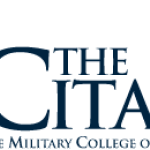- Settore: Education
- Number of terms: 941
- Number of blossaries: 0
- Company Profile:
The voice and implied speaker of a fictional work, to be distinguished from the actual living author. See Point of view.
Industry:Literature
A comparison between essentially unlike things without an explicitly comparative word such as like or as. An example is "My love is a red, red rose." Compare Simile.
Industry:Literature
A contrast or discrepancy between what is said and what is meant or between what happens and what is expected to happen in life and in literature. In verbal irony, characters say the opposite of what they mean. In irony of circumstance or situation, the opposite of what is expected occurs. In dramatic irony, a character speaks in ignorance of a situation or event known to the audience or to the other characters.
Industry:Literature
The conversation of characters in a literary work. In fiction, dialogue is typically enclosed within quotation marks. In plays, characters' speech is preceded by their names.
Industry:Literature
An imaginary person that inhabits a literary work. Literary characters may be major or minor, static (unchanging) or dynamic (capable of change). In Shakespeare's Othello, Desdemona is a major character, but one who is static, like the minor character Bianca. Othello is a major character who is dynamic, exhibiting an ability to change.
Industry:Literature
A symbolic narrative in which the surface details imply a secondary meaning. Allegory often takes the form of a story in which the characters represent moral qualities.
Industry:Literature
The grammatical order of words in a sentence or line of verse or dialogue. The organization of words and phrases and clauses in sentences of prose, verse, and dialogue
Industry:Literature
The idea of a literary work abstracted from its details of language, character, and action, and cast in the form of a generalization."
Industry:Literature
